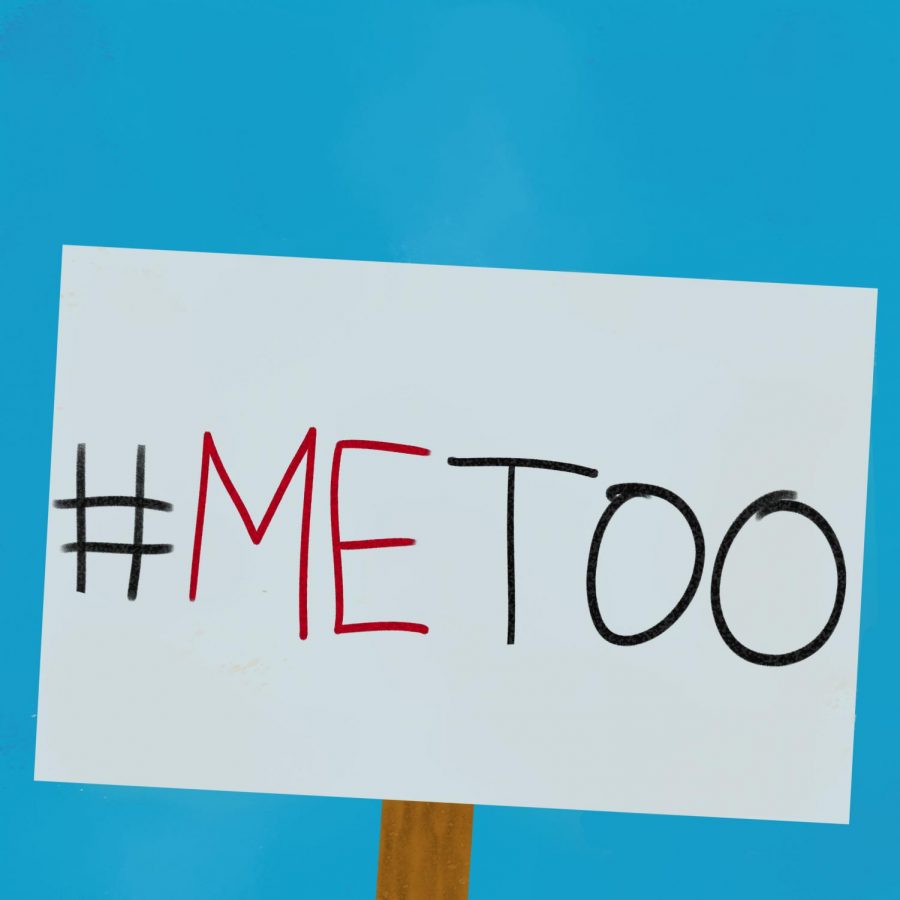The #MeToo Movement and Performative Accountability
PROGRESS? Accountability is both key to the movement, yet something that feels as if it is lacking among the frenzy of accusations.
December 7, 2018
Last year, an article was published by the New Yorker titled, “From Aggressive Overtures to Sexual Assault: Harvey Weinstein’s Accusers tell Their Stories.” The feature dove into a multitude of accusations made by women against the former film producer and Hollywood figure, Harvey Weinstein. This article marked, for some, the defining moment where the “Me Too” movement reached mainstream media. After that day in October, Twitter, Instagram, and numerous news and publication sites were flooded with supporters standing with those who had come out, while victims themselves shared their stories in solidarity with one another. This can be seen by some as the idealized time of the movement, back before the so-called “attack on men” occurred and it was truly about punishing the few bad apples in the batch. However, the truth is that it is not just “a few bad apples” who need to be held accountable, but rather, entire crops.
According to the National Sexual Violence Research Center (NSVRC), “One in five women and one in 71 men will be raped at some point in their lives.” The Federal Bureau of Investigation (FBI) published in their National Incident-Based Reporting System (NBIRS) on Sex Offenses in 2013 which listed 26,944 accounts of victims of rape and 32,505 victims of cases involving fondling. Even more disparaging is the reality that these numbers could be even higher considering that according to the (NSVRC), “Rape is the most under-reported crime; 63% of sexual assaults are not reported to police.” It is a troubling truth that must be faced for justice to ensue, but the reality is that sexual assault is common, and for every victim there is an offender, which is to say that the number of offenders are just as abundant as the assaults themselves. In the same 2013 NIBRS report made by the FBI, the number of reported offenders of rape in the U.S. was 29,609.
When Harvey Weinstein was accused, it was easy for the media to side with the victims, especially considering his almost villainous persona described in the New Yorker article and the overwhelmingly high number of accusations against him. But later, as more names were dropped and more victims came out, the world began to lose its steam. Celebrity accusations against those like Louis C.K. and James Franco were brief flickers of energy in the swarm that exists as American media. Just as briefly as they were discussed, they seemed to disappear as the world moved onto the next horrifying headline that appeared online. It seemed as if these men’s careers were left completely unaffected by their accusations; with C.K. taking a brief hiatus before starting up on performing comedy again last August, and Franco going on to win a Golden Globe for his performance in “The Disaster Artist.”
This lack of accountability is disheartening to witness, bringing up questions about the true intention of those in the media with their involvement in the “Me Too” movement. Why did it seem as if the media let some people go with a simple slap on the hand? Was it because Franco was a self-proclaimed “feminist” and wore a “Time’s up” pin on his black suit to the Golden Globes to represent solidarity with assault victims? Was it because C.K. was a seven-time Emmy Award winner and a long standing prominent figure in the comedy community? For true justice to occur, accountability must be held to everyone, not just when it is convenient or fits the script. When we pick and choose the celebrities we want to hold accountable, it reflects negatively on our ability to criticize our own communities, and it enforces a stereotype of what an offender should be or look like. Not all sex offenders are storybook villains, lurking in the shadows waiting to strike. They can be family, friends, peers, mentors, strangers, spouses, lovers. The deeply uncomfortable truth we must hold onto is that anyone is capable of being the assaulter or the victim when it comes to sexual assault. When we paint offenders to be a certain type of person, it shocks people when true offenders turn out to be far from what seemed. That is when we get disbelief, victim-blaming, and often, forced ignorance to the actions one has done and justice lost for a possible victim.
A reasonable but misguided concern of those who feel skepticism of accusations of assault cite the commonly assumed question, “What if the allegation is made up?” Often the first set of reasoning used by skeptics, the common perception of the amount of false rape accusations that occur is far higher than the real amount. In a study done by David Lisak, Lori Gardinier, Sarah C. Nicksa, and Ashley M. Cote, titled, “False Allegations of Sexual Assault: An Analysis of Ten Years of Reported Cases,” they found that within ten years containing 136 assault cases, only eight of them were coded as false allegations. This meant that only 5.9 percent of reported cases were legitimately false allegations. This myth that the assault victim’s own word cannot be trusted can result in feelings of shame, a distrust of their perception, and humiliation. In a recent case in Ireland, a 17-year old girl was forced to hold her underwear up to the court as evidence against her accusation, only for the verdict of the trial to end “not-guilty.”
Through what feels like the never-ending swarm and buzz of media and the new found use of “Me Too” as a hot topic to stir controversy, remember the value of the truth and continue to criticize and asses your own communities. Help bring justice to those wronged by the hurt of assault and call out the predators in the spaces you roam. Even when it is uncomfortable, even when it is hard, stand together and support one another in doing what is best to help each other. A movement will fall apart without consistency. Hold offenders accountable to their actions. In the long run, empty words and shallow intentions will never help bring justice to those who deserve it, so remain ever present and aware for a better future in the end.





John Smith • Apr 2, 2019 at 12:57 pm
Do you only allow comments that you agree with? Is that intellectually honest?
adviser • Apr 4, 2019 at 8:47 am
We do post comments. This was just an old article, so we didn’t see the pending comment. We don’t get very many comments.
John Smith • Apr 1, 2019 at 9:07 pm
Im not trying to be a troll but that statistic is horribly misrepresented. The Lisak study proves that at a bare minimum, 2 to 11 percent of accusations of false. There could be more false accusations. We just don’t know. Just like it would be misleading to state that since only a very small percent of rape cases are brought to conviction, all the other cases must be false.
Furthermore there are no stats for accusations made on facebook but never brought to the authorities.
Kaitlin D'Souza • Dec 11, 2018 at 8:41 am
I never really thought about the importance of accountability in big movements before. This is such a well written article!